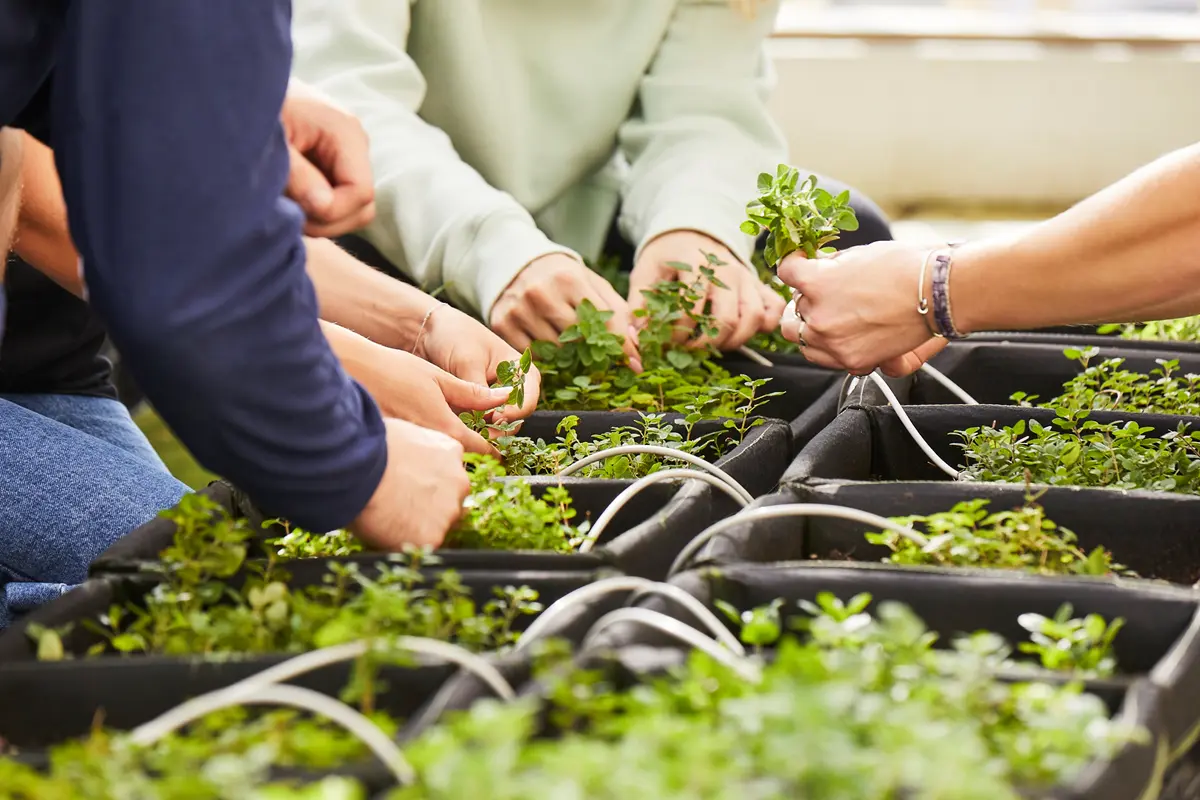
Thanks to a collaboration between UMass Lowell and Lowell-based urban farming nonprofit Mill City Grows, there is a rooftop garden outside the windows of the busy second-floor landing in University Crossing overlooking Salem Street. The garden primarily produces herbs. The Office of Sustainability and Mill City Grows designed the 500-square-foot space in 2019. The modular garden consists of about 200 plants growing in individual milk crates filled with nutrient-rich compost, generated from food waste from the university’s dining halls. Learn more by reading the article: Rooftop Garden Takes Urban Agriculture to Another Level.
In 2021, the Office of Sustainability installed a second rooftop garden featuring about 500 growing containers for herbs, vegetables and flowers covering the 2,300-square-foot mezzanine roof at O’Leary Library on South Campus. Learn more by reading this Boston Globe article: On UMass Lowell Roof, a Garden Grows.
Student Research & Community Collaboration
In collaboration with Mechanical Engineering Associate Professor Juan Pablo Trelles and Electrical Engineering Associate Professor Cordula Schmid, UMass Lowell students, Sam Alpert, Bernard Tabu and Visal Veng have created a revolutionary, new and more efficient type of fertilizer. The research team began refining the fertilizer system at UMass Lowell’s O’Leary Library Green Roof during the summers of 2022 and 2023. The technology uses solar power to produce fertilizer on-demand and onsite, while also being a modular mode of production that does not emit greenhouse gases. Read more in the UMass Lowell Press Release: Fertilizer Innovation Aims to Reduce Carbon Footprint.
Craic Sauce, is a Lowell-based company that seeks to produce quality, locally produced hot sauces. During the summer of 2023 the O’Leary Library Green Roof was planted with Hungarian hot wax peppers, cayenne peppers and Fresno chilis that the company used to collaborate with the university on a dual branded sauce.
What Is a Rooftop Garden?
Derived from the broader concept of Green Roofs, Rooftop Gardens are a specialized and innovative way to combat the lack of green spaces in urban areas, while also providing locally grown produce. In collaboration with several UMass Lowell student groups, local non-profits and local businesses, these Rooftop Gardens serve as a functional and picturesque way to combat climate change and inspire campus-wide action for environmental sustainability. Our Rooftop Gardens use a circular system in which compost made from food scraps is taken from the several dining halls located throughout campus, to grow produce that will then be used in the dining hall meals. This process provides a system that allows students and faculty alike to enjoy their food in a way that repurposes food waste, uses locally grown food and supports local non-profits and businesses.

